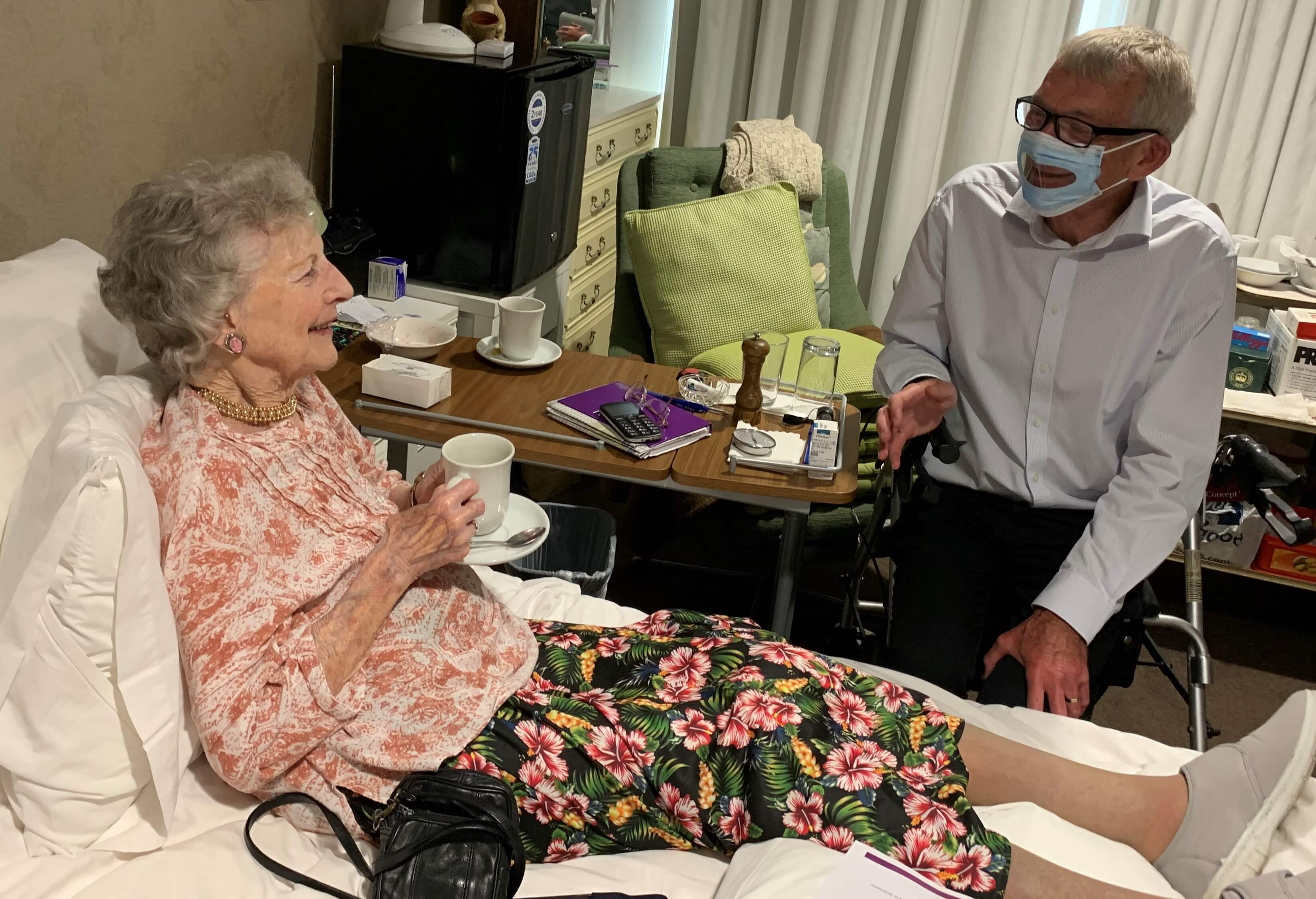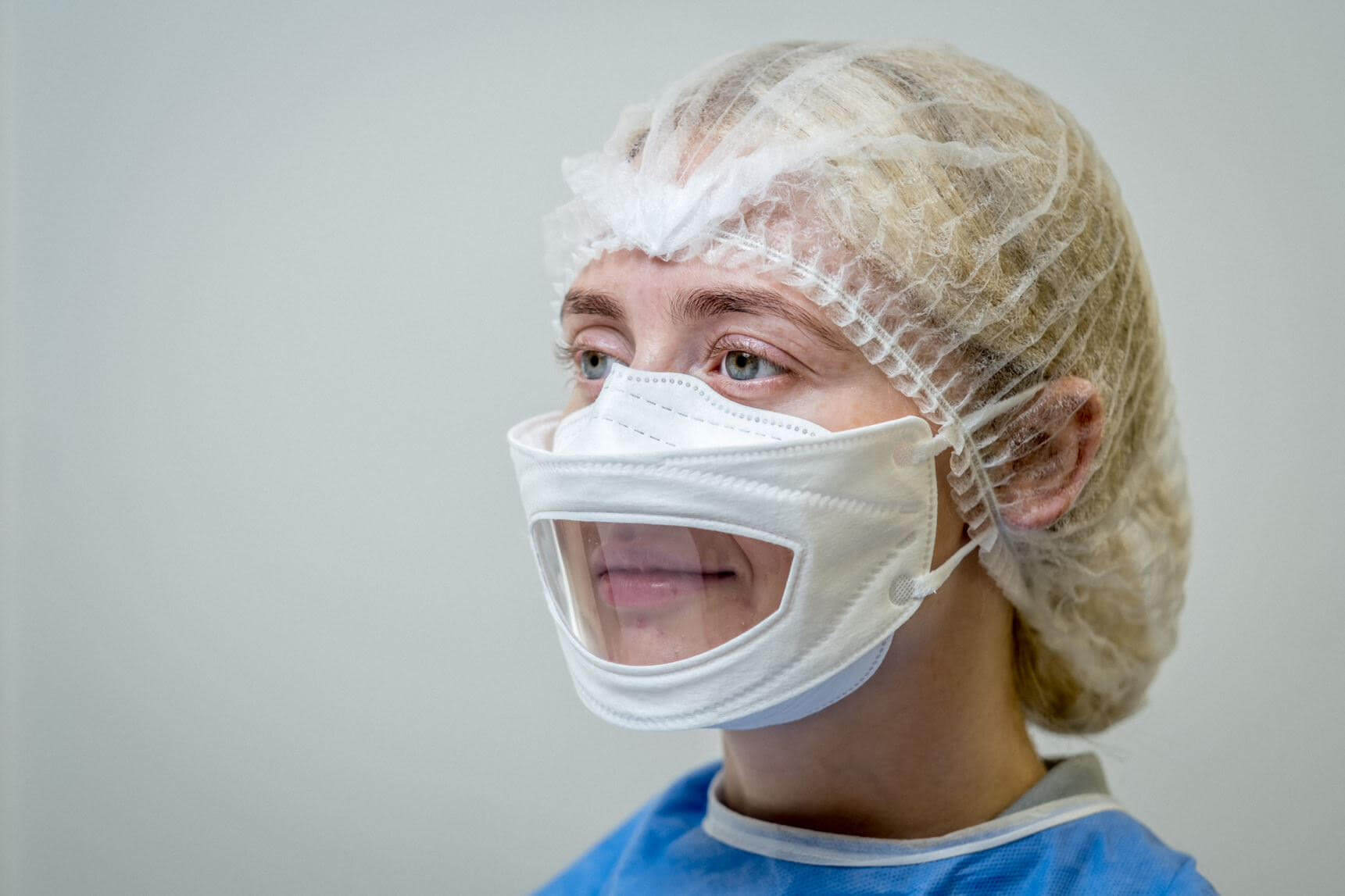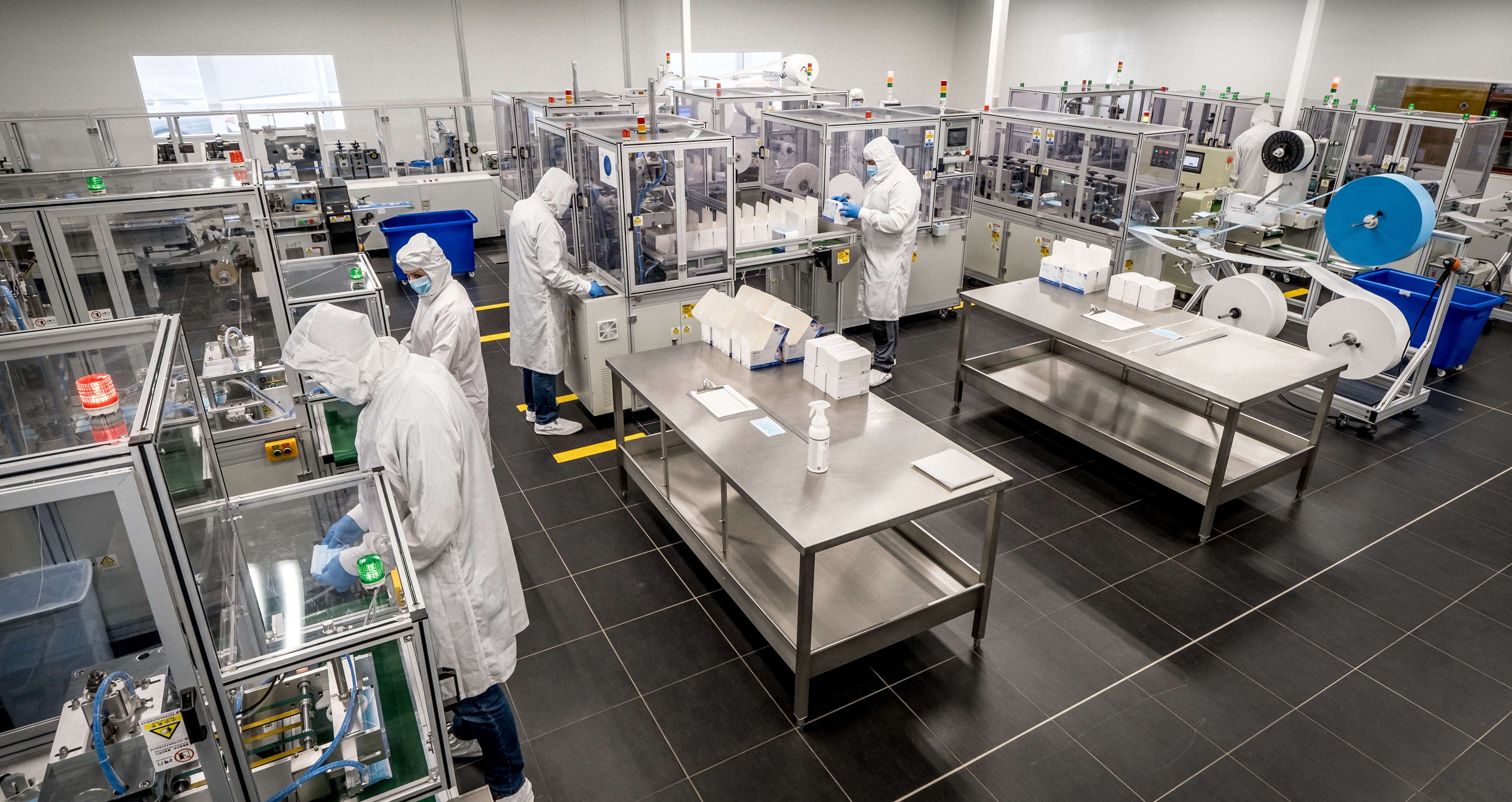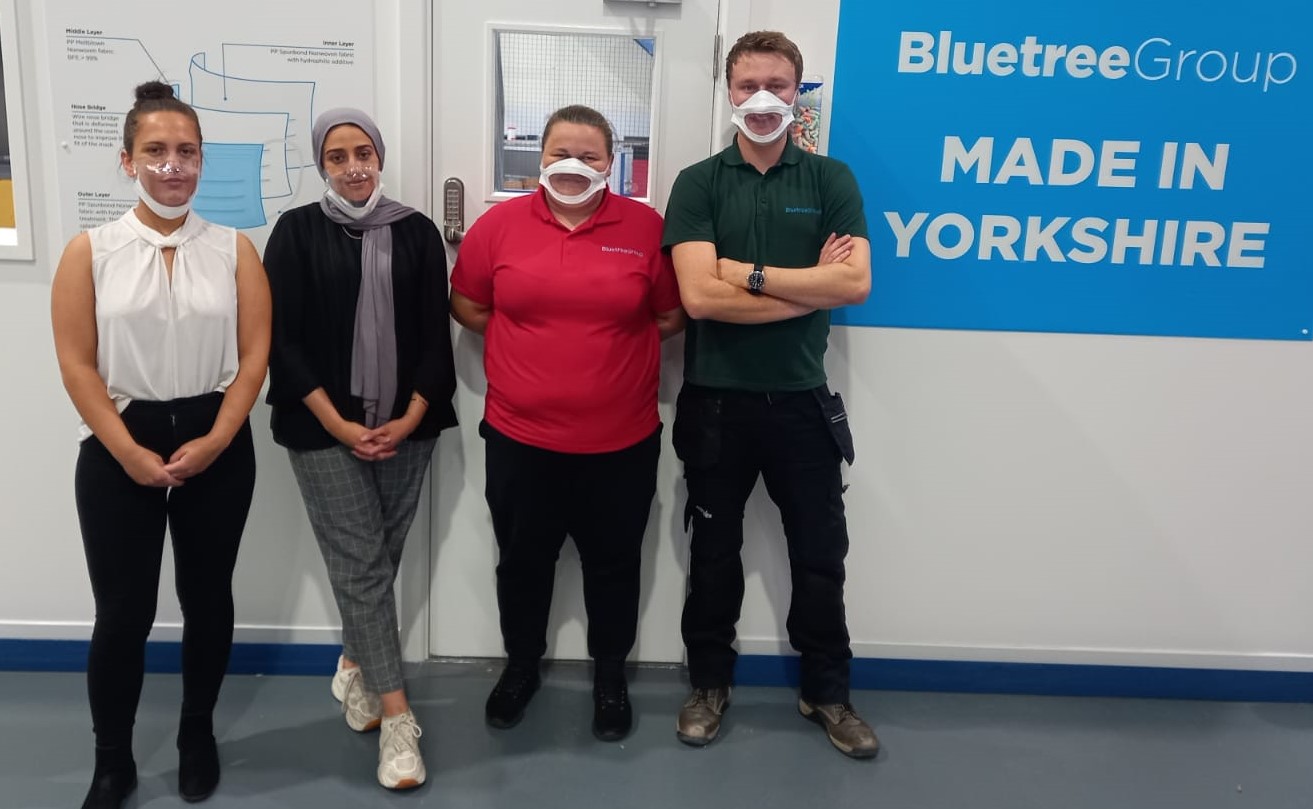The government has abandoned plans to back a novel type of anti-viral face
mask, denting the ambitions of a group of innovative UK manufacturers and
developers as Covid cases rise.
Transparent face masks are especially helpful for people with hearing loss
and other communication difficulties – a group that has struggled to cope
with conventional masks because they hide the wearer’s lower face and mouth.
Masks are a critical element of public health strategies to combat Covid and
related viruses: medical-grade face coverings accounted for roughly a third
of the £12bn the government has spent on personal protective equipment (PPE)
since coronavirus became a threat.
As a result of the recent surge in Covid cases, some health advisers have
called for a return to mandatory mask wearing in shops, hospitals and on
public transport. Up to 10 per cent of demand for medical-grade masks could
eventually be accounted for by transparent versions, say industry observers,
especially if they can be made cheaper.
I tried out clear masks – made by Contechs, a Warwick company best known for
automotive engineering – at a care home for old people in London where my
95-year-old mother Marguerite is a resident. She said: "It is so nice if I
can see people's mouth and lips so I can tell if someone is smiling."
 Care home resident Marguerite Marsh in conversation with her son Peter,
trying out a Contechs clear mask
Care home resident Marguerite Marsh in conversation with her son Peter,
trying out a Contechs clear mask
A carer at the home said: "I’ve been saying for some time that we need masks
such as this so we can communicate much more easily with the people we are
trying to help."
The new masks include a clear plastic window fitting inside the normal
fibrous material of a conventional mask. Due to the difficulty of adding
this window using automated machines, clear masks are currently much more
expensive than conventional ones, although industry experts believe prices
should fall over time.
After more than a year of talks with industry representatives about a
project to procure approved clear masks made or developed in the UK, the
Department of Health and Social Care said it had “unfortunately” shelved the
scheme as “products have not entered the market quickly enough to pilot by
the DHSC-led PPE programme”. It added that it "continues to actively
encourage manufacturers to develop new, innovative products which meet the
standard for transparent face masks”.
Roger Wicks of the Royal National Institute for the Deaf, a charity, said
access to healthcare for people with hearing loss had been “exceptionally
difficult during the pandemic [due to] communication barriers”. The pilot
project’s abandonment was therefore “incredibly disappointing”.
Gavin Killeen, a director of North West Medical, which makes its own brand
of clear masks near Londonderry in Northern Ireland, said the DHSC’s
decision followed long delays in the granting of technical approvals to
companies working on the devices. “The whole process has been very
frustrating” he said.
The DHSC’s reason for cancelling its pilot programme puzzled some industry
representatives, because a big part of the scheme’s rationale had been to
help stimulate the clear-mask market. Also – with three clear masks
including the Contechs product having received technical approval and others
in the pipeline – health officials had a reasonable choice of coverings from
which to select for the pilot. The compliance procedures for clear masks
were devised by the DHSC representing England along with partner health
agencies in Wales, Scotland and Norther Ireland.
 The government has encouraged the development of clear masks such as this
one made by North West Medical, but has shelved a planned funding scheme
The government has encouraged the development of clear masks such as this
one made by North West Medical, but has shelved a planned funding scheme
Under the outline for the pilot, the DHSC was to have distributed masks from
a central pool to healthcare facilities and care homes throughout the UK.
While the money allocated to the scheme was modest – between £3m and £10m,
according to industry executives, enough to pay for perhaps 20m masks – it
had been designed to “pump prime” supply to allow proper testing in
real-life conditions and help the products gain acceptance.
The DHSC declined to elaborate on its decision. But in seeking an
explanation some observers have pointed to the large costs so far of buying
PPE for Covid – along with evidence that some of the money has been spent
unwisely on poor-quality or unsuitable items. In addition, the clear masks
approved so far are expensive – selling for 35p to £1 each, compared to the
price of a hospital-quality Type IIR mask of 5p-20p. Clear masks of the sort
approved by the government have a protective performance comparable to Type
IIR coverings, of which 1.5bn were used in the National Health Service in
England in the year to June 30 2022, accounting for 96 per cent of total NHS
demand, according to DHSC figures.
Chris Endicott, managing director of Britannia Safety, which distributes
another of the approved clear masks, the Smile Shield, said: “The
cancellation of the DHSC pilot was annoying – we spent over a year on this
including nine months on the actual testing and compliance, not to mention
possibly hundreds of emails to various ministries, councils, police forces
etc…However, I can fully understand the massive costs that Covid has cost
the country in grants and furlough, as well as a myriad of other
unforecastable costs such as the vaccine program – something had to give.”
Smile Shield was developed by TAD Medical of Bristol, which makes its masks
in China but wants to bring production to the UK. The third certified
product is made by Globus Medical, a US group making masks at two UK plants.
At Bluetree – a company based near Rotherham, with several clear masks in
development, though none yet authorised by the DHSC – James Kinsella,
co-chief executive, said he was “relaxed” about the cancellation. Bluetree,
which is a Made Here Now
sponsor, is
continuing to press the case for government approvals of its transparent
products, while stepping up efforts to sell its masks overseas.
A key point for Bluetree is that some of its clear masks, called
Brilliansee, can be washed and reused up to 30-40 times. Virtually all
high-grade hospital facemasks currently used in the UK, including most of
the clear masks now being evaluated, are single use, adding immensely to the
UK waste mountain.
 Inside the North West Medical mask-making plant near Londonderry
Inside the North West Medical mask-making plant near Londonderry
“[The reusable version of] Brilliansee is exciting because we don’t believe
any reusable, transparent products exist in the market,” said Kinsella.
Alder Hey children’s hospital in Liverpool, which has worked with Bluetree
on its mask development said: “The Brilliansee mask [in either its reusable
or single-use forms] is as safe as the surgical masks worn daily, safer than
if clinicians are removing their masks so they can conduct the session, such
as in speech therapy, and safer than cloth masks that are not equivalent to
[hospital-grade] masks.”
At TAD Medical, Tom Anderson-Dixon, a director, said that in the absence of
the government pilot the company had stepped up its efforts to sell the
Smile Shield coverings to individual health trusts. “We’ve been quite
successful in getting the products into the market. The mask has had a lot
of positive feedback,” he said.
On manufacturing, Anderson-Dixon said: “We are hoping we can move this to
the UK at some point so long as we find we can make the products here at a
cost that the market will accept. We have formulated a strategy for doing
this and have located a potential site for production. We think that making
the products in the UK would help our brand and want to make it happen.”
Clear-mask makers aim for greater visibility
 Hannah Sousa, Zoya Azam, Meg Hill and James Ford (left to right) are among
the staff at a plant near Rotherham run by Bluetree, a UK leader in
developing and making clear masks
Hannah Sousa, Zoya Azam, Meg Hill and James Ford (left to right) are among
the staff at a plant near Rotherham run by Bluetree, a UK leader in
developing and making clear masks
News that the government has abandoned a pilot project to support UK
companies making transparent face masks has raised doubts about its
commitment to boost domestic production
of personal protection equipment (PPE) and create a more resilient supply
chain.
Demand for fresh stocks of PPE could surge if new strains of Covid or other
viruses lead to a sustained rise in infections and hospital admissions,
prompting the reimposition of mask-wearing in shops or on public transport.
In the early stages of the crisis, poor planning created a crippling
shortage of masks and other protective gear, forcing the Department of
Health and Social Care to pay high prices to overseas suppliers, notably in
China. Raina Summerson, chief executive of Agincare, a Dorset company that
runs care homes, said that transparent masks undoubtedly help communication
with elderly people and "given the lessons learned in the pandemic" these
should be sourced in the UK if possible.
Official plans call for at least 50 per cent of all protective equipment
used in the UK, such as gowns, aprons and masks, to be manufactured
domestically. Before the pandemic, just 1% came from UK plants. However, the
government has declined to provide details of progress towards its target.
The 50 per cent plan was referred to in 2021 by Sir Chris Wormald, DHCS
permanent secretary, during parliamentary hearings.
The shelving of this pilot echoes a similar decision in a related project
earlier in the pandemic. In 2020 the DHSC dismayed industrial
representatives when it pulled out of a
mooted £75m scheme
to boost UK production of hospital gowns that could be washed and reused up
to 100 times.
The initiative had been framed as a bold move to reduce the environmental
impact of single-use PPE. The Cabinet Office had estimated that at the peak
of the Covid crisis almost half a million single-use gowns were being thrown
away by hospitals each day.
As in the previous case, the DHSC encouraged UK manufacturers to develop
medical-grade clear masks, to tackle the current lack of supply and to boost
the amount of PPE made in the UK. Mask makers can still try to sell their
products to health trusts and private-sector users but without the stimulus
that a centralised purchasing programme would have given them.
In July 2021, the department said: "DHSC continues to actively encourage
manufacturers to develop new, innovative products which meet the standard
for transparent face masks…..DHSC has allocated funding for a pilot of new
transparent masks in health and social care settings..... We anticipate that
these initiatives will result in the availability of safe and effective
transparent face masks to health and social care workers."
Clear masks fit tightly against people’s faces, and so offer much higher
degree of protection than the transparent visors in widespread use during
the pandemic.
According to the DHSC, more than 80 types of clear mask supplied by
different developers were submitted for testing while the pilot scheme was
under discussion. Some have gone on to be examined in a convoluted
“four-nations” testing procedure led by the DHSC and involving several
UK-wide health agencies.
The scheme’s demise comes in the wake of controversy over the government’s
PPE procurement. The House of Commons’ public accounts committee said in a
report in June 2022 that much of the DHSC’s procurement in 2020 was
“haphazard, even given the scale of the challenge in building stocks at a
time of massive global shortages”. Of the £12bn of PPE purchased during the
crisis, the committee found that about a third turned out to be useless and
will have to be incinerated or sent to landfill.
The report also criticised the degree of scrutiny the department gave to
contract negotiations, finding that almost a quarter of all its PPE
contracts were subject to “commercial negotiations, legal review or mediate
after they had been awarded.
Gavin Killeen, a director of North West Medical, a manufacturer of clear
masks, said: "It's clear that as the pandemic has developed, the UK has
strengthened its ability to make masks and other sorts of PPE at more
competitive prices, compared with the rest of the world. This has been due
to the experience we and other manufacturers have gained over this period,
along with the investments in automation. When you factor in the resilience
you get from having local manufacturing, the case for buying locally has
become more compelling."
A key factor behind what has happened with clear masks is that in the early
stages of the pandemic the government massively over-ordered many types of
PPE. As a result, some items in the UK stockpile may not need replenishing
for several years.
However for innovative products such as high-quality transparent masks, few
if any are held in existing stocks, making it far harder for officials to
argue that boosting supply is unnecessary – especially if rising Covid
infections put mask-wearing back on the agenda.
